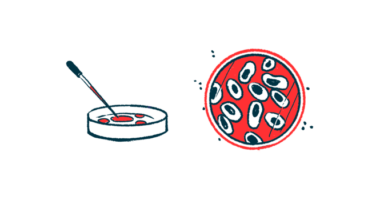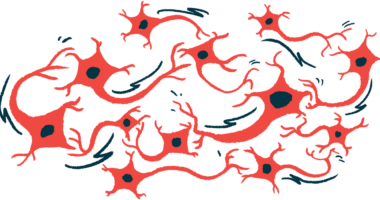VectorY raises millions to support antibody gene therapy for ALS
Financing to advance into trials treatment targeting TDP-43 protein clumps

VectorY Therapeutics has raised about $138 million in funding aiming to bring into clinical testing VTx-002, its lead treatment candidate for amyotrophic lateral sclerosis (ALS). The therapy equips nerve cells to produce antibodies against the damaging TDP-43 protein clumps that are an ALS hallmark.
“The investment will enable us to advance our lead program VTx-002, a potentially disease-modifying therapy for ALS, into clinical development. Our program is uniquely positioned to address TDP-43 pathology, which underlies the disease in the vast majority of ALS patients,” Sander van Deventer, CEO of VectorY, said in a company press release.
The accumulation of TDP-43 protein clumps in nerve cells is seen in about 97% of all ALS cases, and clearing these toxic molecules is regarded as a potential approach to delaying or preventing disease progression in nearly all patients.
A faulty TDP-43 protein clumps in nerve cells of ALS patients
Antibodies are natural proteins made by the immune system that are able to bind a specific target. A few antibodies aimed at clearing misfolded TDP-43 proteins from nerve cells are in development.
However, traditional antibody-based therapies are usually too large and limited in their ability to reach the brain and spinal cord. They also require regular administrations, as infused antibodies eventually degrade and lose their effectiveness.
VectorY is developing vectorized antibodies, a class of antibodies that essentially deliver the genetic sequence of an antibody to target cells, enabling them to produce their own therapeutic antibodies.
The platform uses harmless adeno-associated viruses (AAV) that were modified to be highly specific to cells in the brain and spinal cord. In VTx-002, that AAV carries a gene designed to enter cells, where it can be used to produce an antibody against the faulty TDP-43 protein, while leaving functional TDP-43 proteins unharmed.
Notably, because the virus stays inside cells until they die, a single administration of the therapy is expected to result in long-term antibody production and durable responses.
Proceeds from the Series A financing also will be used to boost the development of existing and new vectorized antibodies for other conditions marked by the buildup of toxic protein aggregates, diseases called proteinopathies that include Huntington’s and Parkinson’s.
“The series A will also support advancement of additional pipeline programs targeting proteinopathies in neurodegenerative diseases demonstrating the broad potential of our platform,” van Deventer said.
The financing round was co-led by EQT Life Sciences and the Forbion Growth Opportunities Fund, with the support of multiple new and past investors.
“We are very impressed with VectorY’s unique capabilities to combine gene and antibody therapy drug development with deep neuroscience expertise. The company’s technology allows for targeted protein degradation while restoring or preserving normal protein function, with applications across multiple neurodegenerative diseases,” said Arno de Wilde, director at EQT Life Sciences.
Previous and new finance round investors included MRL Ventures Fund, a corporate venture arm of Merck in the U.S., Insight Partners, ALS Investment Fund, Forbion Ventures, and BioGeneration Ventures.
“The Series A financing, supported by such a strong syndicate of European and US investors, is an endorsement of our pioneering approach … to bring much-needed therapies to patients with neurodegenerative diseases,” van Deventer said.
As part of the financing, de Wilde, Wouter Joustra, a partner at Forbion Growth Opportunities Fund, and Karin Kleinhans, a partner at MRL Ventures Fund, will join VectorY’s board of directors.







